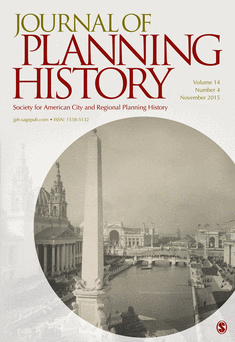
Archive for February 2021
Self‐reported weight loss attempts and weight‐related stress in childhood: Heightening the risk of obesity in early adolescence
Patients and family caregivers report high treatment expectations during palliative chemotherapy: a longitudinal prospective study
The scale and structure of government financial investment in traditional medicine based on optimal efficiency: evidence from public traditional Chinese medicine hospitals (PTHs) of Henan province, China
Towards a better understanding of abortion misinformation in the USA: a review of the literature
Young people’s mental and emotional health: Trajectories and drivers in childhood and adolescence
Assessing organisational capacity for evidence-informed health policy and planning: an adaptation of the ORACLe tool for Australian primary health care organizations
Investigating gender differences in the early markers of Autism Spectrum Conditions (ASC) in infants and toddlers
An experimental investigation of the effects of perspective-taking on emotional discomfort, cognitive fusion and self-compassion
Deterministic blockmodelling of signed and two‐mode networks: A tutorial with software and psychological examples
The Power of Persistence
Debate on petitions relating to grooming gangs
Gliosarcoma in patients under 20 years of age. A clinicopathologic study of 11 cases and detailed review of the literature
Narrative Exposure Therapy versus treatment as usual in a sample of trauma survivors who live under ongoing threat of violence in Rio de Janeiro, Brazil: study protocol for a randomised controlled trial
Influence of Health Beliefs on Adherence to COVID-19 Preventative Practices: International, Social Media–Based Survey Study
Investigating the Interrelations Between Systems of Support in 13‐ to 18‐Year‐Old Adolescents: A Network Analysis of Resilience Promoting Systems in a High and Middle‐Income Country
Men in rural Nigeria have a poor perception of prostate cancer risk; hence they seldom seek screening
“I did not plan to have a baby. This is the outcome of our work”: a qualitative study exploring unintended pregnancy among female sex workers
New method of measuring subjective well-being: prospective validation study of the ‘Daily Experience Sampling Questionnaire (DESQ) in patients with psoriasis and healthy subjects in Germany
Identifying outlier patterns of inconsistent ambulance billing in Medicare
Levels and correlates of physical activity and screen time among early years children (2–5 years): Cross‐cultural comparisons between Canadian and South Korean data
The association between home ownership and the health of older men: Cross‐sectional analysis of the Australian Concord Health and Ageing in Men Project
Comprehensive analysis of alcohol policies in the Latin America and the Caribbean
Quarterly Direct Payment Statistics for Northern Ireland (December 2020)
Alcohol use disorders, beverage preferences and the influence of alcohol marketing: a preliminary study
The effects of group centrality and accountability on conformity to cyber aggressive norms: Two messaging app experiments
Singlehood in contemporary Japan: Rating, dating, and waiting for a good match
Experiences of Intimate Partner Violence during Lockdown and the COVID-19 Pandemic
Dismantling racism against Black, Indigenous, and people of color across the substance use continuum: A position statement of the association for multidisciplinary education and research in substance use and addiction
Nursing Home Resident, Family, and Staff Perspectives on Hospital Transfers for End-of-Life Care
First steps in identifying and addressing loneliness in the context of COVID-19
Rethinking the concept of ‘subaltern-researcher’: different D/deaf identities and communicative modalities as conflict factors in in-depth interviews
Does Neuronal Recycling Result in Destructive Competition? The Influence of Learning to Read on the Recognition of Faces
Statement in relation to legal routes from the EU for protection claimants including family reunion of unaccompanied children
Posttraumatic Stress Disorder Treatment Dropout Among Military and Veteran Populations: A Systematic Review and Meta‐Analysis
Jacqueline Evans, Florida International University – CogTracer (discusses memory and contract tracing during COVID-19)

Prevalence and prediction of kindergarten-transition difficulties
An asset-based community development approach to reducing alcohol harm: Exploring barriers and facilitators to community mobilisation at initial implementation stage
Interdisciplinarity as an opportunity in Argentinian and Ecuadorian writing groups
“The Work Continues”: Cornel West & Maria Hinojosa on the Promise & Dangers of the Biden Admin
Youth Centres as Foodscapes and Informal Learning Environments in Finland
‘Scene’ as a critical framing device: Extending analysis of chemsex cultures
Effects of Violent Video Games on Aggressive Cognition and Aggressive Behavior
Advanced integrated practice: bridging the micro-macro divide in social work pedagogy and practice
From Urban Renewal to the BeltLine: Atlanta’s Use of Public Health Narratives to Reshape the City

Journal of Planning History, Ahead of Print.
Since the early days of the planning profession, city agencies relied on a public health crisis narrative as a rationale for mass displacement efforts that targeted black communities. Over time, as cities gentrified with white, middle-class residents, the narrative shifted toward the city as a place of health. This article compares Atlanta’s redevelopment narratives from urban renewal to its current citywide greenway project, the BeltLine, to understand how city officials utilized public health language to rationalize displacement and how the narratives ran counter to residents’ lived experience.